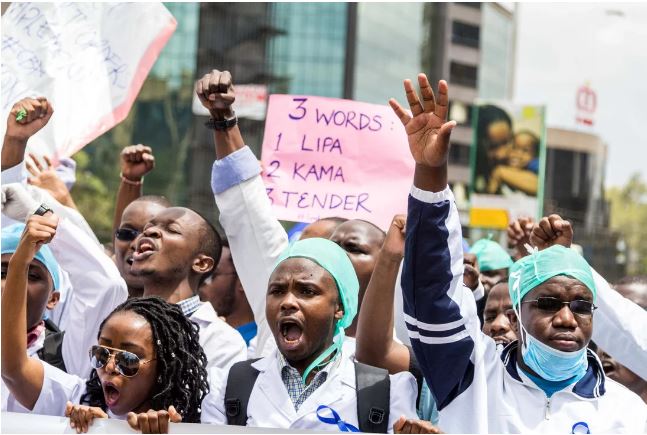
The High Court has upheld the Salaries and Remuneration Commission (SRC) directive on the rate of stipend for healthcare interns.
The court verdict now means that the Salaries and Remuneration Commission (SRC) directive on the stipend rate for medical interns set at Ksh 70,000 will not be vacated.
In her ruling, Lady Justice Maureen Onyango dismissing five petitions that sought to overturn SRC’s decision on grounds of discrimination and alleged overreach.
The consolidated petitions, filed by healthcare interns and related professional bodies, argued that SRC’s decision to set standard stipend rates was unconstitutional.
The petitioners claim that the Commission created disparities between medical and non-medical healthcare interns and disregarded previously established remuneration structures.
The petitions, filed following SRC’s directive of March 13, 2024, alleged that SRC had failed to consult stakeholders adequately, ignored prior stipend levels, and created disparities among healthcare interns.
They sought the court’s recognition of all interns as ‘public officers’ under Article 260 of the Constitution of Kenya, 2010, which would entitle them to equitable treatment across the public service. They argued that the current stipend arrangement was discriminatory under Article 27 of the Constitution.
The court’s ruling, however, reaffirmed SRC’s authority to determine remuneration rates for public service interns based on budgetary constraints and fiscal sustainability.
“The letter dated March 13, 2024, from SRC, was an advisory to the Ministry of Health and did not violate any of the provisions cited by the Petitioners,” the Judge ruled.
In its defence, SRC stated that setting remuneration, including stipends for public officers, falls squarely within its constitutional mandate.
Internships are classified as training periods, rather than employment, with stipends adjusted according to available funds.
SRC maintained that adjustments to intern stipends are key to ensuring fiscal responsibility amid limited government resources, highlighting the Ministry of Health’s own financial constraints, including an additional funding request of Sh9.6 billion to meet budgetary needs.
Further, SRC argued that differences in stipend levels among healthcare interns are justifiable and based on economic realities, rather than discriminatory intent.
The High Court found that SRC acted within its constitutional authority, and its actions were justified by budgetary realities and the unique nature of internship training programmes.
Discrimination, as defined under Article 27 of the Constitution, applies only when individuals in comparable circumstances are treated differently without reasonable justification. The court ruled that SRC’s stipend directives, given the financial context, were lawful and not discriminatory.




 © The Star 2024. All rights reserved
© The Star 2024. All rights reserved